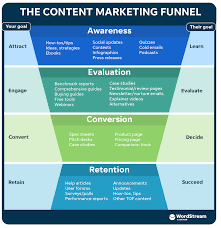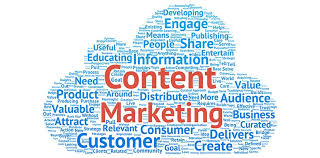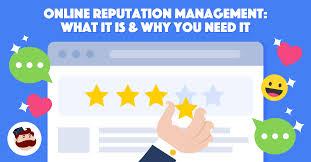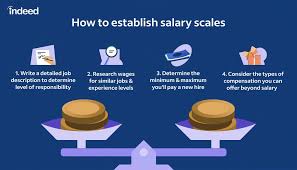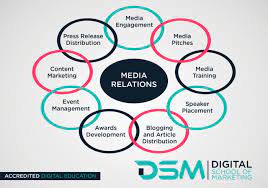Mastering the Art of Content Marketing: Strategies for Success in the Digital Age
The Power of Content Marketing in Driving Business Success
Content marketing has become a crucial strategy for businesses looking to engage with their target audience, build brand awareness, and drive conversions. In today’s digital age, where consumers are constantly bombarded with information, creating valuable and relevant content has emerged as a powerful way to cut through the noise and connect with potential customers.
One of the key benefits of content marketing is its ability to establish credibility and authority within a specific industry or niche. By consistently delivering high-quality content that addresses the needs and interests of your target audience, you can position your brand as a trusted source of information. This not only helps in building brand loyalty but also attracts new customers who are seeking reliable solutions to their problems.
Furthermore, content marketing plays a vital role in driving organic traffic to your website. Search engines like Google value fresh, relevant content when ranking websites in search results. By regularly publishing blog posts, articles, videos, infographics, and other types of content that resonate with your audience, you can improve your website’s visibility and attract more visitors who are actively searching for information related to your products or services.
Another advantage of content marketing is its ability to nurture leads and guide them through the buyer’s journey. By creating targeted content that addresses the different stages of the customer lifecycle – awareness, consideration, decision – you can engage with prospects at each touchpoint and provide them with the information they need to make informed purchasing decisions.
Moreover, content marketing allows businesses to showcase their unique selling propositions (USPs) and differentiate themselves from competitors. By highlighting what sets your products or services apart from others in the market through compelling storytelling and informative content, you can effectively communicate your value proposition to potential customers and convince them to choose your brand over others.
In conclusion, content marketing is a powerful tool that businesses can leverage to drive business success in today’s competitive landscape. By investing time and resources into creating valuable, relevant content that resonates with your target audience, you can build brand awareness, establish credibility, drive organic traffic, nurture leads, and ultimately increase conversions.
Six Key Advantages of Content Marketing: Boosting Brand Visibility, Establishing Industry Authority, and More
- 1. Enhances brand visibility and awareness among target audience.
- 2. Establishes credibility and authority within the industry or niche.
- 3. Drives organic traffic to the website through SEO-friendly content.
- 4. Nurtures leads by providing valuable information throughout the buyer’s journey.
- 5. Showcases unique selling propositions (USPs) to differentiate from competitors.
- 6. Increases customer engagement and loyalty through relevant and valuable content.
Three Key Challenges of Content Marketing: Consistency, Measurement, and Differentiation
- Content marketing requires consistent effort and resources to create high-quality content that resonates with the target audience, which can be time-consuming and costly.
- Measuring the ROI of content marketing efforts can be challenging, as it may take time to see tangible results and attribute conversions directly to specific pieces of content.
- With the increasing volume of online content being produced every day, standing out from the competition and capturing the attention of your target audience can be a significant challenge.
1. Enhances brand visibility and awareness among target audience.
Content marketing plays a crucial role in enhancing brand visibility and awareness among the target audience. By consistently creating and distributing valuable and relevant content that resonates with consumers, businesses can increase their online presence and reach a wider audience. Through strategic content marketing efforts, companies can position themselves as industry leaders, build trust with their target market, and ensure that their brand remains top-of-mind when consumers are making purchasing decisions. This increased visibility not only helps in attracting new customers but also in fostering long-term relationships with existing ones, ultimately driving business growth and success.
2. Establishes credibility and authority within the industry or niche.
One significant advantage of content marketing is its ability to establish credibility and authority within a specific industry or niche. By consistently producing high-quality and relevant content that addresses the needs and interests of the target audience, businesses can position themselves as trusted sources of information. This not only helps in building brand loyalty but also attracts new customers who seek reliable solutions to their problems. Through informative and valuable content, businesses can showcase their expertise, demonstrate thought leadership, and gain the trust of consumers, ultimately solidifying their position as industry leaders.
3. Drives organic traffic to the website through SEO-friendly content.
Content marketing is a highly effective strategy that drives organic traffic to websites through the creation of SEO-friendly content. By producing high-quality, relevant content that aligns with popular search queries and incorporates targeted keywords, businesses can improve their website’s visibility in search engine results. This not only attracts more visitors who are actively seeking information related to the products or services offered but also enhances the overall online presence and authority of the brand. Ultimately, leveraging content marketing to enhance SEO efforts can result in increased website traffic, improved search engine rankings, and a higher likelihood of converting visitors into customers.
4. Nurtures leads by providing valuable information throughout the buyer’s journey.
Content marketing excels in nurturing leads by delivering valuable information at every stage of the buyer’s journey. By creating targeted content that addresses the specific needs and concerns of potential customers, businesses can engage with prospects, build trust, and guide them towards making informed purchasing decisions. This approach not only helps in establishing a strong relationship with leads but also increases the likelihood of converting them into loyal customers. Through consistent and relevant content, businesses can effectively nurture leads from initial awareness to final decision-making, ultimately driving business growth and success.
5. Showcases unique selling propositions (USPs) to differentiate from competitors.
Content marketing offers businesses a valuable opportunity to showcase their unique selling propositions (USPs) and effectively differentiate themselves from competitors. By crafting compelling content that highlights the distinctive features, benefits, and values of their products or services, companies can communicate their competitive advantages to potential customers in a meaningful way. This strategic approach not only helps businesses stand out in crowded markets but also enables them to build stronger brand identities and foster customer loyalty based on what sets them apart from the competition.
6. Increases customer engagement and loyalty through relevant and valuable content.
Content marketing excels in increasing customer engagement and fostering loyalty by delivering relevant and valuable content. By consistently providing information that resonates with the target audience’s interests and addresses their needs, businesses can establish a deeper connection with customers. This engagement not only builds trust but also encourages repeat interactions and brand advocacy. Customers are more likely to remain loyal to a brand that consistently delivers content that adds value to their lives, ultimately leading to long-lasting relationships and increased customer retention rates.
Content marketing requires consistent effort and resources to create high-quality content that resonates with the target audience, which can be time-consuming and costly.
One significant drawback of content marketing is the substantial investment of time and resources required to consistently produce high-quality content that effectively engages the target audience. This process can be both time-consuming and costly, as it demands thorough research, creative planning, and skilled execution to ensure that the content resonates with the intended audience. Businesses must allocate significant resources towards content creation, including hiring talented writers, designers, and marketers, as well as investing in tools and technologies to support content development and distribution. This ongoing commitment to maintaining a high standard of content can strain a company’s budget and manpower, making it a challenging aspect of content marketing that requires careful planning and strategic resource management.
Measuring the ROI of content marketing efforts can be challenging, as it may take time to see tangible results and attribute conversions directly to specific pieces of content.
One significant challenge of content marketing lies in measuring the return on investment (ROI) of these efforts. Unlike some forms of marketing that yield immediate results, content marketing often requires time to see tangible outcomes and link conversions directly to specific pieces of content. This delay in measuring ROI can make it challenging for businesses to accurately assess the effectiveness of their content strategies and allocate resources optimally. Additionally, the complex customer journey and multiple touchpoints involved in content consumption further complicate the attribution process, making it difficult to determine which content assets contribute most significantly to conversions.
With the increasing volume of online content being produced every day, standing out from the competition and capturing the attention of your target audience can be a significant challenge.
In the realm of content marketing, one notable challenge lies in the escalating volume of online content being generated daily. As businesses and individuals alike strive to create and distribute engaging material, standing out amidst this sea of information becomes a daunting task. Capturing the fleeting attention of a target audience in such a saturated digital landscape requires innovative strategies and compelling content that can truly resonate with viewers amidst the noise of competitors.





